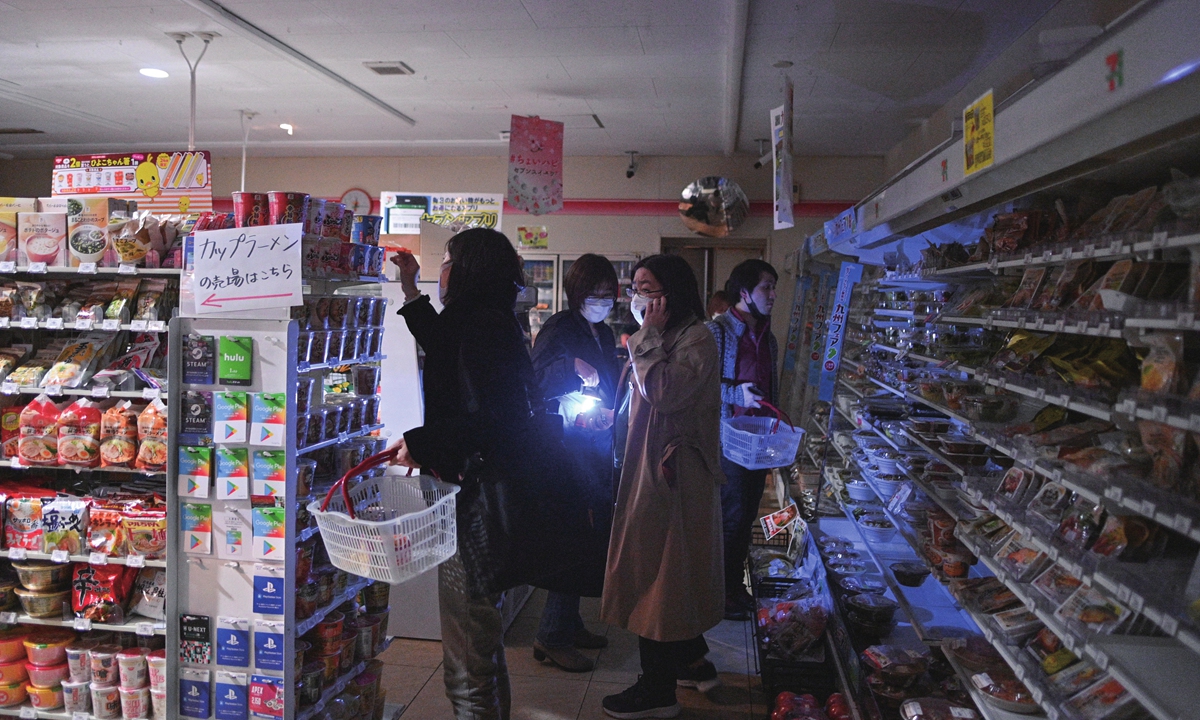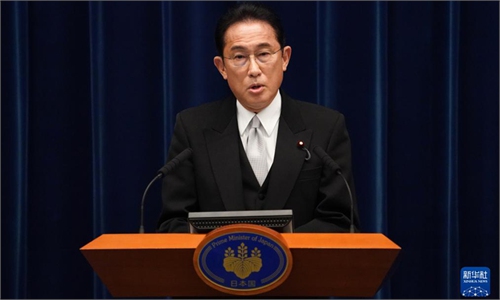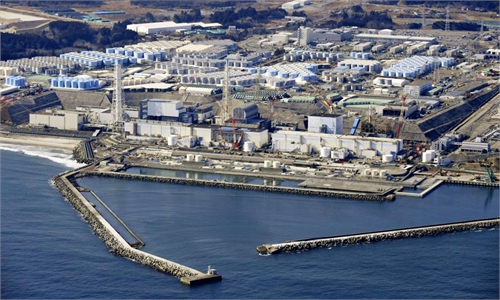Powerful quakes off the east coast of Japan unsettle local Chinese who raised safety concern of Fukushima nuclear facilities

People shop at a store in a residential area during a power outage in Koto district in Tokyo on March 16, 2022, after a powerful 7.4-magnitude quake jolted east Japan. Nikkei reported that no abnormalities were detected at the Fukushima Daini nuclear plant, according to regulators. NHK reported about 2 million households were without power. Photo: AFP
Powerful earthquakes of magnitude 6.0, 7.4 and 5.6 struck off the east coast of Japan on Wednesday night, leaving at least four deaths and 97 injuries and causing electricity blackout in Fukushima, Tokyo and several other cities. The powerful earthquakes reminded many Chinese people in Japan of the nightmare of the deadly 9.0 quake and tsunami in 2011 that caused multiple nuclear reactor meltdowns. As of Thursday morning, local Chinese told the Global Times that their life was not much affected but they worried about the safety of the nuclear facilities in Fukushima.
Wang Ling, deputy head of Fukushima Overseas Chinese Federation, told the Global Times on Thursday that she was sorting out some files when the quake struck late night. The tremor was strong and lasted for a long time. It was "very similar" to the deadly quake 11 year ago, and "very scary," she said.
She was worried about her family as she had lost connection with her brother for more than two hours after the quakes. Her brother lives near the coast, and she called him for two hours but failed to connect with him. She finally felt relieved after reconnecting with her brother.
This year marks the 11th anniversary of the magnitude 9.0 quake that devastated the region, but most places did not organize large commemorative events due to the pandemic. It seemed life had returned to normal, but another powerful quake hit the region just one week after the 11th anniversary, bringing people the memories of the nightmare 11 years ago, she said.
Fortunately, this time no serious tsunamis have been triggered so far, and there were no serious casualties. Some local stores owned by Chinese were damaged, but everyone was safe.
Wang said each time when the quake hit the Fukushima region, she was receiving phone calls from the Consulate-General of China in Niigata asking whether she was safe and whether she needed any help, which made her feel "nice."
Their life has not been affected much other than that electricity and water supply were cut off in the Fukushima region, and classes were canceled, but what she worried about the most was the safety of nuclear facilities in the region.
Li Yan, president of Sendai overseas Chinese federation, told the Global Times that he had the same concern.
A fire alarm went off in the turbine building of the No. 5 reactor in Fukushima, and it seemed likely to take a long time for the Japanese government to deal with safety concerns at the Fukushima plant.
Japan's nuclear regulator said that data showed no abnormalities with the reactors and facilities at the Fukushima Daiichi nuclear power plant, though a fire alarm went off in the turbine building of the No. 5 reactor, the Kyodo News reported on Thursday.
Li contacted many local Chinese in Sendai immediately after the quake, and most of them had their furniture damaged at home, but nobody was injured. Although there were still aftershocks, they were not strong, he said.
He contacted the local Chinese Embassy and also reminded local Chinese to pay attention to safety warnings and fire alarms.
The Chinese Embassy in Japan immediately launched emergency mechanism after the quake to protect the life and property of local Chinese. The embassy said as of 9 am Thursday, it has not yet received any reports of casualties among Chinese nationals in Japan.
Relatively strong aftershocks are likely to hit Japan in a week, according to Japan's meteorological department. The embassy said overseas Chinese in Japan, especially those who live near the epicenter, should be on high alert for the aftershocks and secondary disasters such as landslides.


